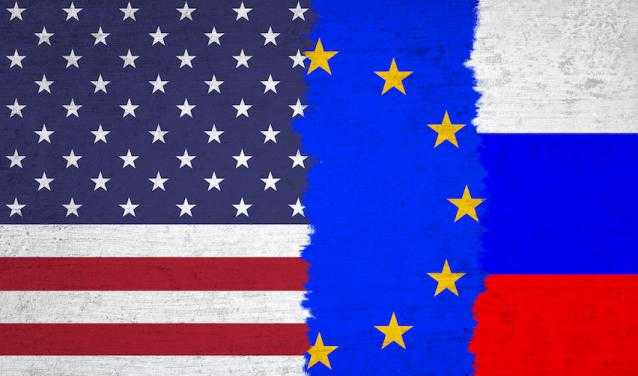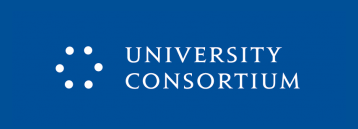Home>University Consortium: Scientific Dialogue Between the US, Europe and Russia

08.01.2020
University Consortium: Scientific Dialogue Between the US, Europe and Russia
In April 2019, Sciences Po became a member of the University Consortium, a project created in 2015 following the observation of the decline in academic expertise on Russia in the West and the renewal of tensions in East-West relations. The University Consortium was effectively born out of the desire to create a space for dialogue and common reflection on the security issues in the Euro-Atlantic zone at a moment where relations between Russia, Europe and the US are in crisis and marked by a strong diplomatic, media and ideological polarisation.
The mission of the consortium is to bring together groups of researchers and students representing the US, Europe and Russia, with a view to improve mutual understanding and to engage the three parties in discussions in an equal manner. This would be achieved through ad-hoc lessons, workshops and scientific conferences.
The composition of the consortium is based on a strict balance between the three zones represented: two American universities (Harvard and Columbia), two russian universities (Higher School of Economics and MGIMO) and two European universities (Oxford and Sciences Po). In addition, strong collaborations are created thanks to a network of researchers, diplomats and analysts specialised in the subject. The University Consortium is entirely financed by the Carnegie Corporation of New York.
Dr Julie Newton, from St Antony's College of the University of Oxford, which is the home base of the University Consortium team, is the Principal Investigator of the project.

For David Cadier, researcher at the CERI and Principal of the Consortium at Sciences Po, "it is an innovative and unique project in the sense that it focuses not only on academic exchanges but also on collaborative research and policy engagement, as well as on teaching and support to student initiatives. Through this project, Sciences Po intends to both contribute to the collective reflection of the network and to encourage vocations among its own students. The idea is to encourage them to get involved, or to support them, in specialised studies and research on Russia and its foreign policy."
The University Consortium organises two types of events:
- Two annual training modules. These workshops are organised for students selected by and from within each member institution (UC Fellows). They consist of courses and seminars on an overarching theme, and delivered by external guest professors/lecturers, scholars from the host institution and local speakers specialised in the subject. There is a notable focus on intellectual exchange and collaborative work. The Fellows have the possibility to present the research work they are involved in and to benefit from feedback from the guest professors/lecturers and other Fellows. Sciences Po students invited to participate in these workshops organised on a rolling basis by the member institutions are selected by a committee of experts representing the CERI, PSIA, the Doctoral School and the School of Public Affairs.
- An annual conference bringing together members of the six institutions (researchers and students), partner think tanks as well as diplomats and members of governments or international organisations who deal with and debate, in plenary and in working groups, political, strategic and diplomatic issues at the heart of relations between the three regions. Selected students participate actively in the conference and notably play the role of rapporteurs.
Three Sciences Po students have participated in the last two training modules which took place in February 2019 in Moscow (Higher School of Economics) and in June 2019 at Oxford.
"Right after graduating with a double degree in International Security from Sciences Po and MGIMO, I headed to Oxford after my graduation in Moscow, where I experienced first-hand what the triangle of Russia-EU-US relations meant to my Russian peers. The University Consortium was a dense programme consisting of three to four lectures a day, and was an ideal ending to my academic career that took me to France, to the US and to Russia. Together with students from Russia and the US, we worked through the history of the relations between Russia and the West, and touched upon contemporary challenges such as the rise of China, cyberwar, and the role emotions and perceptions play in international relations and particularly in this constellation. The advantage was that being a rather small, yet diverse group (2-3 representatives of each region), we were able to engage into fruitful debates in a safe space, where everyone felt comfortable voicing their opinion. The unique opportunity to exchange with outstanding professors and experts in their fields (...) was an enrichment to my personal and academic development." - Lisa Becker, 2019 graduate of the dual degree between Sciences Po and MGIMO, participant to the Module organised at Oxford in June 2019
"The UC fellowship was an incredibly enriching experience, as it gave me the opportunity to explore different points of view by exchanging opinions with senior experts and fellow students from across the United States, Europe and Russia. The module allowed me to acquire a well-rounded understanding of the current West-Russia divide, exploring the notion of 'consensus of confrontation' which permeates Russia-West relations and the current stand-off as a 'new normal'." - Giulia Moschetta, 2019 graduate of the dual degree between Sciences Po and MGIMO, participant to the Module organised at Oxford in June 2019
"The module of the University Consortium that took place at the Higher School of Economics in Moscow in February 2019 was an intense and fascinating programme. This inter-university consortium is one of the rare platforms that still allows for an encounter and exchange between Russia, Europe and the US in a context where multilateral discussions seem to be harder and harder to maintain. It is an enriching opportunity for master’s or doctoral students to directly access the voices of Russian academics and experts influential in the elaboration of the foreign policy and strategic vision of the elite in power." - Juliette Faure, PhD student at Sciences Po, participant to the Module organised at the Higher School of Economics in Moscow in February 2019
Sciences Po will host the next training module from 13 to 18 January 2020.
Scholars (Gwendolyn Sasse - Oxford, Gerard Toal - Virginia Tech, Anne de Tinguy - Sciences Po, Jacques Rupnik - Sciences Po), Current or former practitioners (Andrey Gratchev - former advisor to Mikhaïl Gorbatchev, Walter Kemp - OSCE, Enrico Letta - former PM of Italy), and think tank and NGO experts (Samuel Charap – RAND Corporation, Olga Oliker – International Crisis Group) will participate in this event.
Two conferences open to the public will be held on 13 and 16 January 2020 at the CERI:
- The European Regional Security Order and the Crisis in West-Russia Relations
- Blended Conflict in Eastern Ukraine: Evolutions, Effects and Prospects
More information